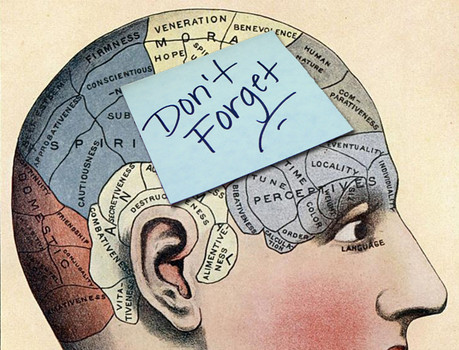Memory in the Time of a Pandemic
 Why do we remember some memories in detail and others more generally? Nicole Long shares her research on the processes behind forming memories. Long is an assistant professor in the Department of Psychology and principal investigator in the Long Term Memory Lab in the College and Graduate School of Arts & Sciences at the University of Virginia.
Why do we remember some memories in detail and others more generally? Nicole Long shares her research on the processes behind forming memories. Long is an assistant professor in the Department of Psychology and principal investigator in the Long Term Memory Lab in the College and Graduate School of Arts & Sciences at the University of Virginia.
What did you have for dinner last night? What about the night before that? And the night before that?
Frequently, and maybe especially during a pandemic in which we don’t go out and don’t see people, the days seem to “blend” together. It can be hard to distinguish one day from the next and we may forget specific, distinct memories.

The research in my lab is aimed at understanding how we form and how we retrieve memories. The difficulty in understanding how memories are formed is that this is something that happens entirely in your head. I can tell if you’ve formed a memory by testing you on it — asking you what you had for dinner last night is a memory test. But what was going on when you first experienced something that lead you to be able to remember it later? What were you (or weren’t you) doing during dinner that made it “stick”? To understand how memories are formed, cognitive neuroscientists like myself use electroencephalography and functional magnetic resonance imaging—technologies that allow us to take measurements of the brain while it is “in action.”
 One reason why days may appear to blend together is that while we are forming memories, we stop paying attention to the unique details that separate that day from all other days. Maybe you remember what you had for dinner one night two weeks ago because you ate outside on the deck, you spilled a drink in your lap, or you had an exceptionally tasty meal. In each of these cases the dinner experience was distinctive, or different from all of the rest, which might have led you to pay more attention to the details around you.
One reason why days may appear to blend together is that while we are forming memories, we stop paying attention to the unique details that separate that day from all other days. Maybe you remember what you had for dinner one night two weeks ago because you ate outside on the deck, you spilled a drink in your lap, or you had an exceptionally tasty meal. In each of these cases the dinner experience was distinctive, or different from all of the rest, which might have led you to pay more attention to the details around you.
Alternatively, it may be that you do form distinct memories with rich detail, but over time, your brain “averages” them together into one “general” memory and the specific details of each day are lost. This averaging process could potentially save space in your brain for more memories and make your memories overall more useful. Do you really need to remember every dinner you’ve ever eaten? Probably not. But it is likely that you know which room in your house has food in it and could likely identify a similar room in someone else’s home. This knowledge reflects the “average” memory that you have of what “dinner” means.
 Measuring brain activity while people are trying to form memories can tell us about how these processes work. In my lab, we’ve found that similar brain regions are active when you’re forming memories that you’ll remember in detail and when you’re forming memories that you’ll remember more generally. Whether you remember details or general information seems to be determined by the kind of task you are performing while you’re making a memory and whether that task makes you attend to detail or general information. This finding tells us that maybe there is a ‘tradeoff’ where you can focus on the details or focus more on the general information, but not both at the same time.
Measuring brain activity while people are trying to form memories can tell us about how these processes work. In my lab, we’ve found that similar brain regions are active when you’re forming memories that you’ll remember in detail and when you’re forming memories that you’ll remember more generally. Whether you remember details or general information seems to be determined by the kind of task you are performing while you’re making a memory and whether that task makes you attend to detail or general information. This finding tells us that maybe there is a ‘tradeoff’ where you can focus on the details or focus more on the general information, but not both at the same time.
It’s likely that in most of our day-to-day experience, there are many specific details that we just don’t need to remember. During a pandemic where we stay at home and don’t encounter many people, there are few if any details unique to a given day. But if you want the details of a day to stand out in your memory, maybe make a new dish – even if it’s a disaster, you’ll remember it.
- A Revolution in the Air: The Wright Brothers Take to the Sky on December 17, 1903
- Musings on National Violin Day
- Making the Promise Real: How a UN Tax Convention Can Fulfill the UNDHR’s Vision
- UVA Club of Atlanta: Virtual Pilates Class
- UVA Club of Alexandria: TaxSlayer Gator Bowl Game Watch
- UVA Club of the Eastern Shore: TaxSlayer Gator Bowl Game Watch